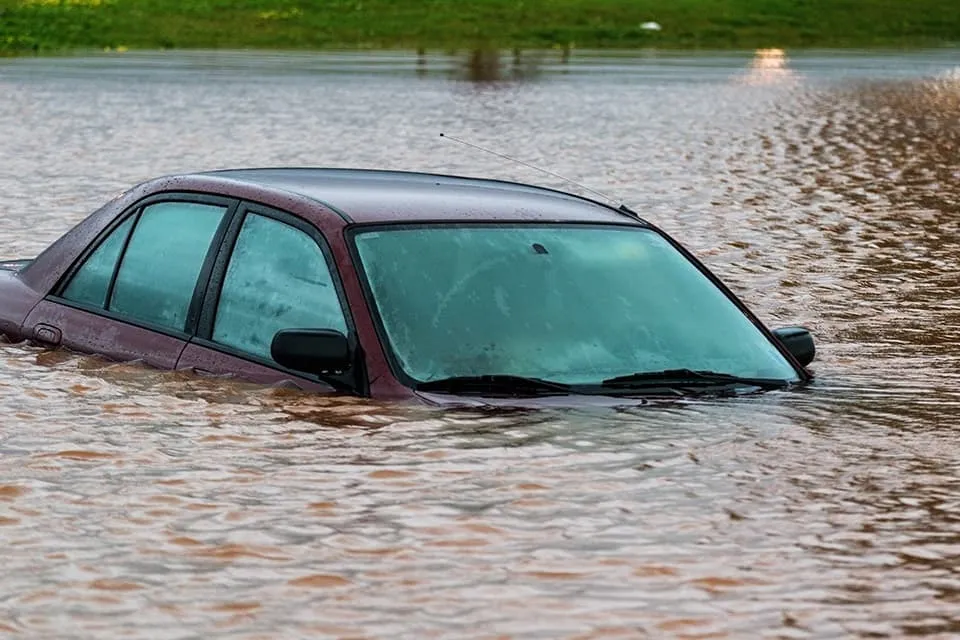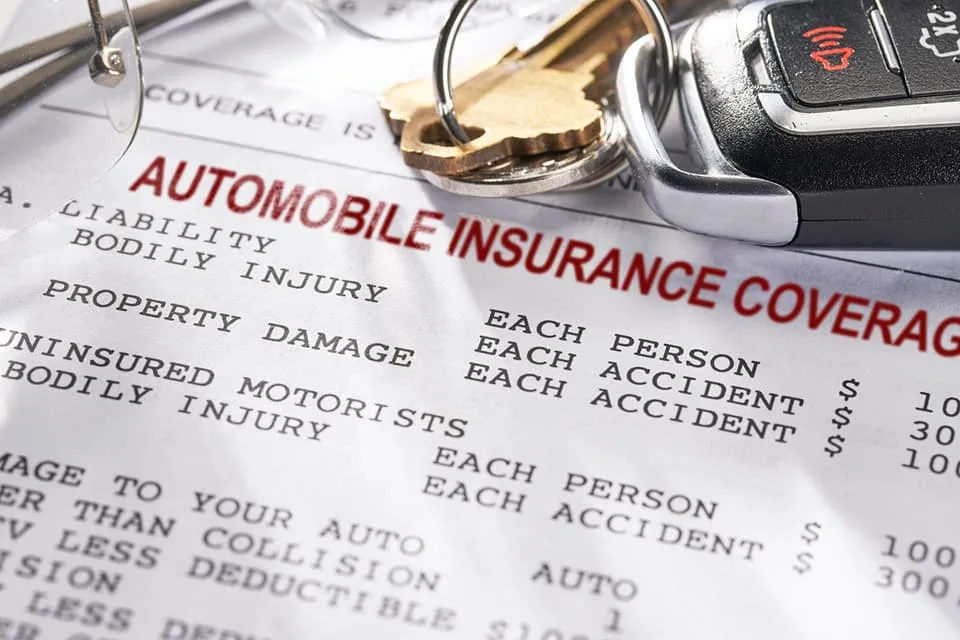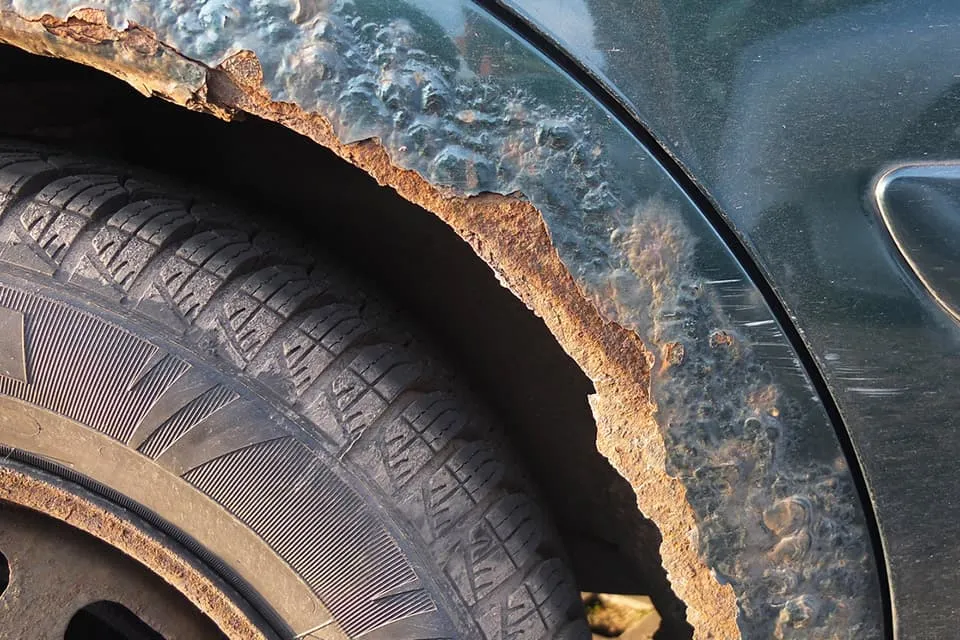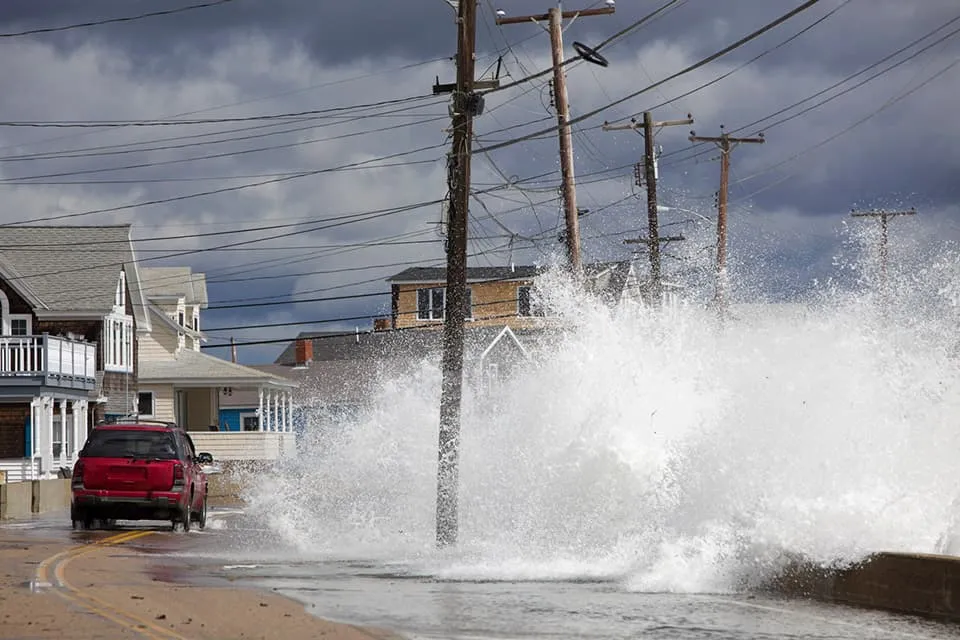- How to Avoid Buying a Flooded Car
- What Does It Mean When a Car is Flooded?
- How Does a Car Get Flooded?
- What To Do If a Car Is Flooded
- Is It Illegal To Sell a Flood-Damaged Car?
- Does Car Insurance Cover Flood Damage?
- Which States Sell More Flood Damaged Cars?
- Common Problems With Flooded Cars
- How to Tell If a Car Has Been In a Flood
- Saltwater Damage to Cars
How to Avoid Buying a Flooded Car

When purchasing a used car, you want to find a vehicle in good working condition, which is a good investment. However, one of the biggest problems you want to avoid is unknowingly purchasing a flooded car.
It may not be evident that a car has suffered flood damage. While flood cars can sometimes be repaired to a satisfactory condition, they often have significant damage that can cause you big problems down the road.
What Does It Mean When a Car is Flooded?
A flood-damaged car is simply a car that has suffered damage from exposure to excessive water. It usually occurs as a result of a flood.
The extent of damage to a flooded car can vary greatly, from superficial water stains to a hydro-locked engine. However, the most significant considerations are usually the amount of water the car was exposed to and the length of time it was exposed.
How Does a Car Get Flooded?
Cars can get flooded in several ways. The most common ways are:
- The vehicle is parked in an area that becomes flooded.
- The windows or sunroof are left open during heavy rain.
- The car is driven through a high-water area, such as a flooded street.
- An accident where the car is submerged in water, such as driving into a lake or large ditch.
- The car was vandalized by the use of water.
What To Do If a Car Is Flooded
The owner of a car insured with both collision and comprehensive coverage will want to report flood damage to their insurance company.
If the owner of the flooded car reports the damage to their insurance company, the insurance company must determine if the car is a total loss or can be repaired. The insurance company will declare a vehicle a total loss if it believes the flood damage cannot be safely repaired or that the repair cost is greater than the car's value. If the insurance company determines that the car is a total loss, the vehicle should get a new title, often referred to as a salvage title.
If you don't have insurance coverage for flood damage, you still must disclose that your car has been flooded to a potential buyer.
Is It Illegal To Sell a Flood-Damaged Car?
It is not legal to sell a flood-damaged car without informing the buyer of the car's true condition. Most dealerships that sell a flood-damaged car will have the buyer sign a waiver acknowledging the flood damage has been disclosed.
If a flooded car is sent to a junk or salvage yard, the owners of these businesses are responsible for reporting the following information to the National Motor Vehicle Title Information System (NMVTIS):
- The name, address, and contact information of the reporting entity.
- The date the vehicle was obtained.
- The Vehicle Identification Number (VIN).
- The name of the person from whom the vehicle was obtained.
- A statement of whether the vehicle will be crushed, disposed of, or whether the car will be offered for sale, and whether the vehicle will be exported out of the United States.
Does Car Insurance Cover Flood Damage?

Collision coverage alone does not cover flood damage to a vehicle; however, comprehensive coverage usually does. Comprehensive coverage will pay for damage from flood, theft, fire, and other damage from natural disasters.
If your car is financed, your finance company usually requires that you carry both collision and comprehensive coverage. It is important to remember to take detailed pictures of your vehicle as soon as possible after the damage occurs. If you can do so safely, it is good to take photographs of your car while still exposed to the floodwaters. It is also wise to take pictures and write down the details of the visible damage to your vehicle immediately after the damage has occurred.
Which States Sell More Flood Damaged Cars?
You want to be cautious and do your research, regardless of where you are buying a used car. However, some areas are more likely to have flood cars for sale.
The following ten states are known to have high incidents of flood-damaged vehicles:
- Texas
- Florida
- Pennsylvania
- Kentucky
- Louisiana
- Illinois
- South Carolina
- North Carolina
- New Jersey
- Michigan
The following five cities are also known to have high incidents of flood-damaged vehicles:
- Houston
- Dallas
- Philadelphia
- Miami
- New York
Many of these locations have more flood-damaged cars due to their proximity to the coast. For instance, in 2021, Hurricane Ida caused flooding along the Gulf Coast of Texas, Louisiana, and Florida and then swept up the East Coast, causing flood damage from South Carolina to New York and New Jersey. Thousands of vehicles can be flooded in hours during a hurricane or other storm.
Common Problems With Flooded Cars

Flooded cars are subject to irreparable damage. Some of the most common problems with flood damaged vehicles include:
- Mold and mildew in areas that cannot be properly cleaned.
- Rusted body panels and other components.
- Damaged engines.
- Electrical circuits control dozens of systems (including the car's safety system, lights, entertainment and information systems, windshield wipers, turn signals, power windows, seats, sunroof, gate lift, and more).
- Odd noises from the brakes, steering wheel, engine, and other areas.
- Foul odors.
- Discolored interiors.
Many professionals believe that a flooded car can never be fully repaired. While the vehicle may look acceptable, there are often hidden damages that may only be found months after purchase.
How to Tell If a Car Has Been In a Flood
With new car prices increasing and the availability of new cars decreasing, many consumers look for a good deal on a used vehicle. However, there are many flood-damaged cars on dealership lots today. If you want to avoid purchasing a flood-damaged car, you need to know what to look for.
Check the vehicle history report.
It is good to get a vehicle history report when considering a used car. An excellent way to check a vehicle history report is through GoodCar.com. This electronic system allows buyers to obtain information about the vehicle's title, insurance total loss records, safety recalls, brand history, odometer rollback information, and more. Having such complete information helps protect consumers from unsafe and fraudulent vehicles and prevents the sale of stolen vehicles.
The brand history refers to whether a vehicle has ever been "branded" as "junk", "flood", or "salvage". Once a vehicle has such a branded title, it remains with the vehicle in the NMVTIS system.
Know What to Look for When Inspecting the Vehicle.
Suppose you've checked out the vehicle history report and found no problem. In that case, it is still possible that the car has been "title washed" by never being reported to the insurance company or by a salvage company. Therefore, you still want to inspect a car carefully before purchasing it. There are several things you should check for when considering whether the car has flood damage, including:
- Check for odors inside the vehicle. For example, mildew and mold can give off offensive odors and may indicate flood damage.
- Check under the floor mats and carpets for water stains or dampness.
- Check the vehicle's metal parts, such as the seat bolts that attach to the floor or screws under the dashboard. Rusty metal parts are signs that a car may have been flooded.
- Check the headlights for signs of condensation or water still inside.
- Check for discolored carpet and upholstery.
- Check for unusual noises coming from the engine or other areas when you test drive the car.
Saltwater Damage to Cars

A car that has been flooded with salt water is likely to experience more severe corrosion and related damage. In addition, saltwater flooded cars are harder to repair and result in more total loss determinations than vehicles inundated with fresh water.
Saltwater tends to immediately rust the car and damage the car's electrical system beyond repair. It does not take long for saltwater to destroy a vehicle.
Saltwater flood damage has been described as similar to dropping a car into acid. Even junkyards and salvage businesses will not usually purchase a saltwater flooded car, as the parts are too corroded or rusted to be of value.
- How to Avoid Buying a Flooded Car
- What Does It Mean When a Car is Flooded?
- How Does a Car Get Flooded?
- What To Do If a Car Is Flooded
- Is It Illegal To Sell a Flood-Damaged Car?
- Does Car Insurance Cover Flood Damage?
- Which States Sell More Flood Damaged Cars?
- Common Problems With Flooded Cars
- How to Tell If a Car Has Been In a Flood
- Saltwater Damage to Cars
FREE Vehicle Search
- Accidents
- Problem Checks
- Title Records
- Recalls
- Values
- Specs
-
InfoPay, Inc. (dba GoodCar) is an Approved NMVTIS Data Provider
-
-






























